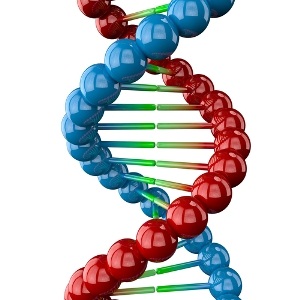
Much of the risk of developing incontinence before middle age is determined by our genes. Genetic factors can explain half of people's susceptibility to urinary incontinence, a study of twins at the University of Gothenburg and Karolinska Institutet (Sweden) reveals.
Urinary incontinence is very common, especially among women, with around one in three affected at some point in life. Incontinence, overactive bladder and other lower urinary tract symptoms can be caused by factors such as old age, excess weight, pregnancy and childbirth, as well as stroke and other neurological disorders.
"Incontinence is caused by a combination of factors," says gynaecologist Anna Lena Wennberg, one of the researchers behind the study. "We already knew that there are hereditary factors, but now we've been able to show for the first time how important the genetic component is for various types of urinary tract disorder."
The study
Conducted in collaboration with the Swedish Twin Registry at Karolinska Institutet in Stockholm, the study looked at just over 25,000 Swedish twins, aged 20 to 46. Information about urinary incontinence, overactive bladder and other lower urinary tract symptoms were analysed using a statistical method which measures how much of the difference between people is due to genetic variation.
By comparing the prevalence of these symptoms in identical twins, who have identical genes, and non-identical twins, who share half of their genetic material, the researchers were able to draw conclusions about the relative significance of genetic and environmental factors.
"With urinary incontinence, we saw that just over half of the variation (51%) can be explained by genetic factors," says Wennberg. "This doesn't mean that half of all people with urinary incontinence inherit it from their parents, but that around 50% of people's susceptibility to urinary incontinence can be explained by their genes."
Genes also turned out to be significant for nocturia – the need to get up in the night to urinate. In this case, around a third (34%) of the variation has a genetic explanation.
Not a single incontinence gene
Wennberg does not believe that there is a single incontinence gene, but rather that a number of different genes play a role. These genes combine with various environmental factors or cause disorders which, in turn, increase the risk of urinary incontinence.
"Urinary incontinence is a multifactorial condition, and while we now know that much of the variation between people is down to their genes, treatment will continue to focus on environmental factors which are easier to influence, such as smoking and excess weight." - (EurekAlert!, April 2011)




 Publications
Publications
 Partners
Partners














